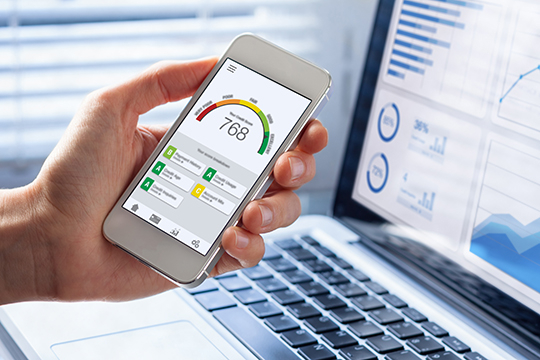
5 common credit report myths debunked
Credit is an important part of money and finances in Canada, but there are many misconceptions about how it works. To help you understand credit better, we’re breaking down five common myths around credit history and credit reports.
Myth 1: Credit history only starts when I take out a loan
Reality: Credit history starts with any form of credit.
Your credit history doesn’t just start when you take out a loan. It begins the moment you engage in activities involving borrowing money or making payments over time. For example, if you get a credit card, a phone plan that requires monthly payments, or a student loan, you’re starting to build your credit history.
But you don’t need to actively take out credit to have credit history. Any unpaid debts, like an unpaid bill or other payment account, can impact your credit history. If you owe money to a business, and don’t pay on time according to the terms of the agreement, the business may send your information to a collections agency. The collections agency may then report it to the credit bureaus. If you have any public records like bankruptcy or tax liens, these may also be reported on your credit.
Myth 2: Only lenders can access my credit report
Reality: Some organizations can access your credit report with your permission.
In New Brunswick, lenders, landlords and potential employers, can access your credit report with your permission.
An employer might want to review your credit history as part of a job application process. Landlords may check your credit report to see if you have a history of missing or making payments. Since all these entities need your permission to ask for your credit report, you can make sure you only give your consent when necessary.
Myth 3: The only way to fix my credit is to pay an agency
Reality: Fixing or repairing your credit doesn’t require you to hire an agency. It is something you can do yourself.
You have the right to dispute with the agency, at no cost to you, the accuracy or completeness of the information in your credit file. You do not need to hire a credit repairer, or anyone else, to exercise this right. If your file contains inaccurate or incomplete information, the credit reporting agency must correct it within a reasonable period of time.
There are some companies that offer to improve credit reports or credit ratings. The Credit Reporting Services Act in New Brunswick prohibits a credit repairer from requiring or accepting payment or security for payment before causing a material improvement to your credit report, credit information, file credit record, credit history or credit rating.
If you have signed up for a credit repair agreement, you may cancel the agreement, without reason and at no charge, any time from the date of entering into the agreement until 10 days after receiving a written copy of the agreement. You may give a notice of cancellation to a credit repairer by:
- delivering it personally to the credit repairer, or
- sending it to the credit repairer by registered mail, prepaid courier, telephone transmission producing a facsimile or any other method that permits the consumer to provide evidence of the cancellation.
After cancelling, the credit repair company must refund your money within 15 days.
Myth 4: Checking my credit report is bad for my credit
Reality: Checking your own credit report has no impact on your credit score.
There are two types of credit inquiries: hard inquiries and soft inquiries.
Hard inquiries are when a lender or credit provider checks your credit to make a lending decision. These may impact your credit score, especially if many are made in a short period. Some common hard inquiries are mortgage applications, auto loan applications, and credit card applications.
Soft inquiries happen when you check your own credit history or when a company checks your credit report for non-lending purposes - for example, a utility company or potential employer. Soft inquiries do not affect your credit score, but they appear on your credit report.
It’s good practice to check your credit report regularly, at least once a year. You may wish to check your report more than once a year if you suspect fraudulent or suspicious activity, such as a stolen identity or impersonation. If you find inaccuracies, you have the right to dispute them.
Myth 5: Cosigning a loan does not affect your credit report
Reality: Cosigning a loan can impact your credit
A cosigner is someone who agrees to be responsible for a loan if the primary borrower fails to make payments. While this might seem like a harmless way to help someone out, it can have serious consequences for your credit.
If the primary borrower makes late payments or defaults on the loan, it may appear on your credit report. The debt will also be considered part of your credit obligations, which can affect your ability to borrow money or obtain favorable interest rates in the future.
Bottom Line
Your credit history is a record of how you’ve managed credit. It helps lenders decide if they should give you a loan or a credit card and certain terms and conditions of your credit agreement, like the interest rate. A good understanding of how to manage credit can help you make better borrowing decisions.
Learn more about credit reporting and credit repair.